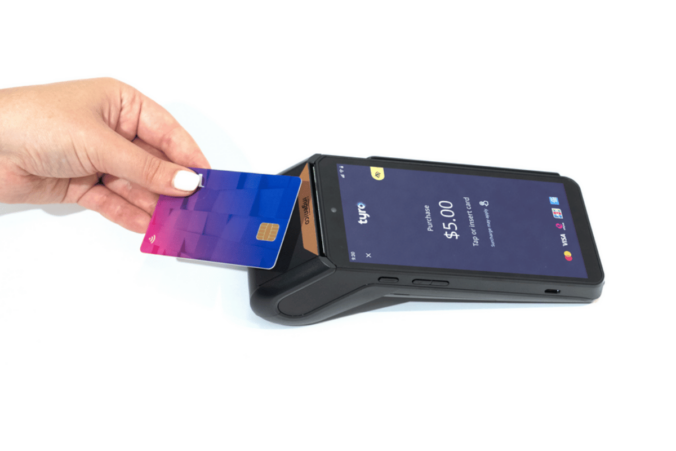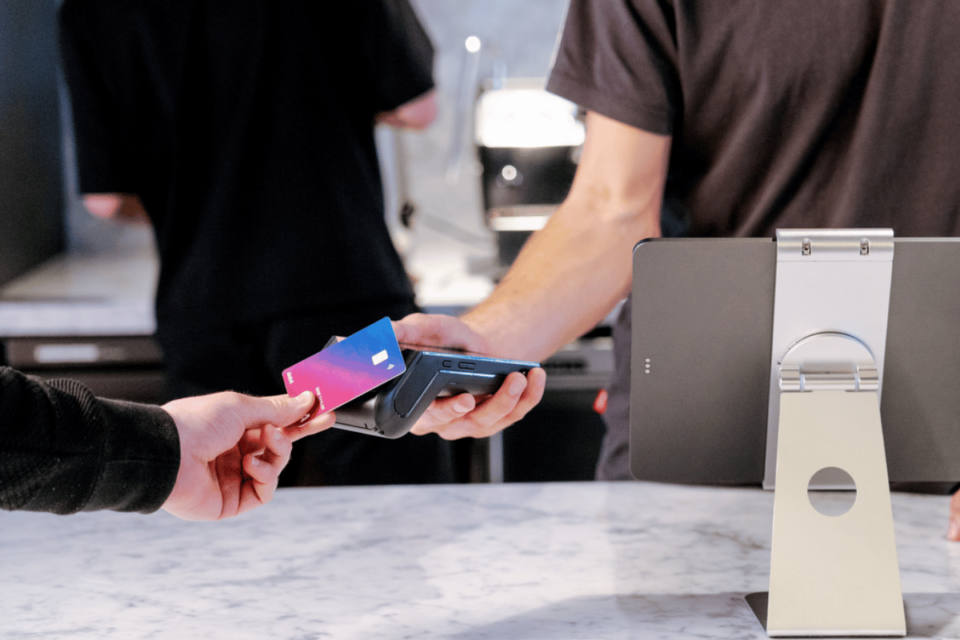How can EFTPOS benefit your business?

28 November 2023 - 5 min read
Business Strategies

In Australia, the way consumers pay for goods and services seems to be changing fast. According to a recent consumer payment behaviour report by the RBA (Reserve Bank of Australia), cash is losing its popularity, accounting for just 13 percent of transactions in 2022. Instead, a significant 76 percent of payments are now made using cards1.
Providing customers with the convenience of card payments via EFTPOS machines aligns with the current trends according to the report by RBA1; However, this transition incurs EFTPOS transaction fees for businesses, which can accumulate. Recognising these fees, understanding their impact on overall business financial health, and taking control of them are beneficial for the overall sustainability and efficiency of businesses.
In this blog, we will explore the concept of merchant fees and dive into practical strategies to help businesses reduce these fees.
Merchant service fees, or EFTPOS card transaction fees, are costs that businesses incur for each card transaction they process, often charged by their payment service provider. The specific fee amount can vary depending on the type of card the customer uses and the card network handling the transaction, like Visa or Mastercard®.
Read our blog to learn more about what is EFTPOS and how does it work.


A surcharge is an additional fee that business owners can add to credit or debit card transactions, on top of the listed retail price. This extra charge helps offset the expenses associated with accepting card payments.
The primary benefit of surcharging is that it enables businesses to keep more of their earnings. By implementing surcharges, you safeguard your profit margins and make sure that the costs related to card payments are adequately covered.
How much can businesses surcharge?
Before you implement, you will need to understand the regulations behind surcharging.
The Reserve Bank of Australia introduced the surcharging framework in 2016/17 to give businesses the right to surcharge, to cover the cost of accepting cards while ensuring consumers are not excessively charged2. In other words, to ensure things are kept above board, you’re not allowed to add a surcharge that’s greater than the cost of accepting a payment by a credit or debit card.
Tyro’s Dynamic Surcharging
Tyro EFTPOS machines have an embedded Dynamic Surcharging3 functionality which allows your business to set up and automatically apply card-specific surcharges to most card transactions. To help you stay compliant, when configuring card-specific surcharges, you can review your cost of acceptance for each card type in the Tyro Portal. Dynamic Surcharging is easy to set up and an efficient method to reduce EFTPOS costs.
Read more about surcharging and whether it is right for your business.
No Cost EFTPOS is a Tyro pricing plan that allows you to recoup the costs of your Tyro EFTPOS facility and enjoy a $0 monthly bill by passing on a surcharge to your customers. * By transacting more than $10,000 per month, you pay no EFTPOS machine rental for that month so you can maximise your savings in every bill. ^
While No Cost EFTPOS might be available from different providers in the market, it’s important to stay cautious about service limitations and possible hidden fees. Tyro’s No Cost EFTPOS does not charge for set-up, integration, exit, or chargeback fees. This transparency helps create a straightforward and cost-effective solution for your business.
Another great way to reduce EFTPOS transaction fees is by using Tyro’s Tap & Save5, our version of Least-cost routing. This feature is designed to keep costs down by processing eligible transactions through the cheapest available network. Eligible transactions include contactless dual-network debit cards.
When it comes to debit card transactions, they can be routed through different networks like eftpos, Debit Mastercard®, or Visa Debit, each with varying costs for businesses. By enabling Tyro’s Tap & Save, you’ll automatically direct eligible debit card transactions under $1,000 to the most cost-effective network, which help your business to reduce card transaction fees for eligible transactions5.


Add onto the cost of products and services
Another way to reduce EFTPOS transaction fees is factoring them into the price of the products and services you sell. This approach allows businesses to include fees as a part of their pricing strategy, ultimately striking a balance between profitability and customer convenience.
To implement this strategy effectively, several steps need to be considered. First and foremost, understanding your customers’ behaviour and their payment preferences is crucial and can inform your pricing strategy.
Additionally, assess the frequency and volume of card payments to evaluate potential fees associated with these transactions. This will ensures that you have a clear picture of how card transactions impact your business financially.
The next step involves finding a balance between maintaining profitability and delivering customer value. While you want to ensure that EFTPOS transaction fees are addressed, it’s equally important to avoid causing customer dissatisfaction. A good balance will help keep your finances in good shape and makes your customers happy.
As a Tyro customer, you can easily access information on how your customers pay by downloading your latest invoice from the Tyro Portal or Tyro App. The invoice will detail the type of cards your customers use and how much it costs to accept each card type.
In a world where card payments have become the norm, small businesses encounter the challenge of handling fees linked to these transactions while also improving the customer experience. We’ve explored three strategies to help solve this challenge.
It’s important to understand your industry, customer base, their behaviour, and expectations. Once you’re clear on this, you can then implement a strategy that aligns best with your unique circumstances.
Interested in exploring how Tyro can help your business save on EFTPOS merchant fees? Get started today!
References & disclaimers:
1 RBA. Consumer Payment Behaviour in Australia
https://www.rba.gov.au/publications/bulletin/2023/jun/consumer-payment-behaviour-in-australia.html
2 RBA The New Regulatory Framework for Surcharging of Card Payments
https://www.rba.gov.au/speeches/2016/sp-so-2016-09-14.html#the-new-regulatory-framework-for-surcharging
3 Dynamic Surcharging is available for Mastercard, Visa, eftpos, UnionPay, American Express, JCB, and Diners Club on CounterTop, Mobile and Tyro Pro EFTPOS machines, and excludes eCommerce transactions. The Dynamic Surcharging feature is not available to customers on No Cost EFTPOS pricing. By default, we do not include your EFTPOS machine rental costs into the calculation of your cost of acceptance, however you may choose to apply these costs into your calculation of your cost of acceptance via the Tyro Portal subject to the surcharging rules as set by the RBA and enforced by ACCC.
4 No Cost EFTPOS may not enable you to recover all your costs of taking electronic payments. It does not cover:
– any optional accessories that you purchase from Tyro;
– if you accept American Express / JCB transactions through your Tyro EFTPOS facility, any fees payable to American Express / JCB based on your agreed rate with American Express / JCB;
or
– orders for EFTPOS machine paper rolls that exceed your reasonable business needs.
5 Tyro does not guarantee any cost savings by opting in for Tap & Save. Savings on eligible transactions processed through the cheapest network vary for each business depending on their card mix, transaction volume and amount, industry, and pricing plan. Eligible transactions are contactless debit card transactions less than $1,000. Tap & Save is not available on Special Offer pricing, Card Not-Present Transactions or where you surcharge on debit card transactions as cost savings may not be realised. For details refer to Tyro.com or call 1300 00 TYRO (8976).
Mastercard is a registered trademark of Mastercard International Incorporated.
You may also like
15 Feb 2023 - 6 min read
29 Sep 2023 - 5 min read
6 Dec 2021 - 4 min read
2 Jul 2024 - 7 min read
Australian-based 24/7 support